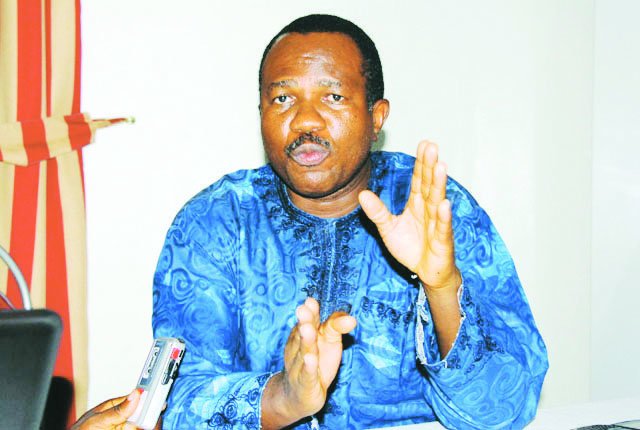
Mr Akin Orebiyii, the immediate past Resident Electoral Commissioner of the Independent National Electoral Commission (INEC) in Lagos State, says electronic voting has overwhelming advantages that can help in addressing the nation’s electoral problems.
Orebiyii, who retired from the commission in 2017, told the News Agency of Nigeria (NAN) on Tuesday in Lagos that it had become imperative in the nation’s political history to fully employ technology to have a better electoral system.
The former INEC official, who retired into farming, spoke while assessing the just-concluded 2019 general elections in the country.
“We should be devising programmes, putting in place technologies, applying them to overcome our electoral problems.
“If we can be using mobile phone today, which reach anybody in the world to conduct businesses, to do banking, to call people, transmit photographs and other information, why are we not ready for what will bring tremendous solutions to electoral causes.
“For me, any day, I will vote for the voting machines. Electronic voting has overwhelming advantages,” Orebiyii said.
The former INEC boss said he had seen electronic voting machines work before and had used them when he led a delegation to Dominican Republic in 2015, to represent INEC at the association of world electoral bodies conference.
According to him, the delegation had to vote on two resolutions and each delegate had electronic voting machine, and in less than 20 minutes, voting was conducted.
Orebiyii, however, said that the nation needed a lot of ground work, especially to assure the politicians across the country, who believed that anything electronic could be used to commit fraud and be manipulated.
He said that thorough training was also required for those that would handle the machines as well as education and enlightenment for the electorate.
Assessing the just-concluded general elections, Orebiyii said: “I will say that the conduct of the 2019 elections has been impressive.
“The preparations of the electoral management body and also the execution of the plans are good, although there were few hitches here and there.
“We should expect such in the conduct of such a massive project across a big country like Nigeria.
“On the overall, it’s been a successful conduct and an improvement on what we saw in 2015 general elections. However, in this country, we should be moving up, that is the essence of development.”
He said that the INEC staff attended to the work more professionally and the machinery needed, to a large extent, were also functional.
The former REC said that the smart card readers had reduced the incidence of over voting, or multiple voting.
Orebiyii, who monitored the elections, commended the conduct of the Nigerian populace, stakeholders and electorate for their patience and understanding with the commission even when materials got late to some areas.
On whether there was any improvement in the functionality of Smart Card Readers during 2019 elections, Orebiyii observed that the batteries of the machines lasted longer than the situation in 2015 elections.
He said that the stricter compliance with the use of card readers, without option of incident forms like what obtained in 2015 election, made the 2019 elections better.
Orebiyii said that the merging of accreditation and voting in 2019 elections was an improvement on that of 2015 elections, saying the simultaneous process helped a lot.
The INEC former boss, however, called on the stakeholders to query the low turnout and find solutions to deepen democracy.
He said that a situation where a huge number of people would register to vote and only few would come out to vote was not good for democracy.
“We should interrogate the issue of low turnout. I can’t comprehend it.
“The stakeholders – INEC, political parties, media, CSOs, must come together and ask why is it that less that 30 million voters came out to vote out of over 80 million registered voters.
“In spite of the massive mobilisation, what is it that makes people register, collect their PVCs and fail to come out and vote?
“It is one of the issues that all of us need to address, interrogate very well going forward to 2023 general elections,” Orebiyii said.
According to him, out of over 6.5 million registered voters in Lagos, only about a million voters came out to vote.





